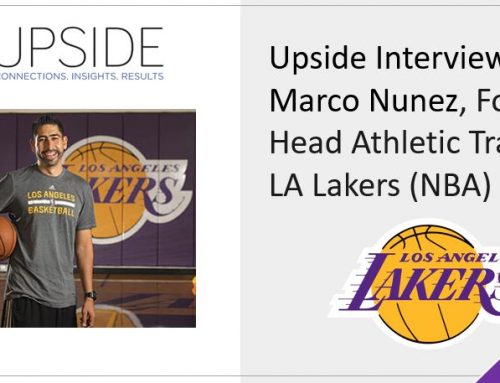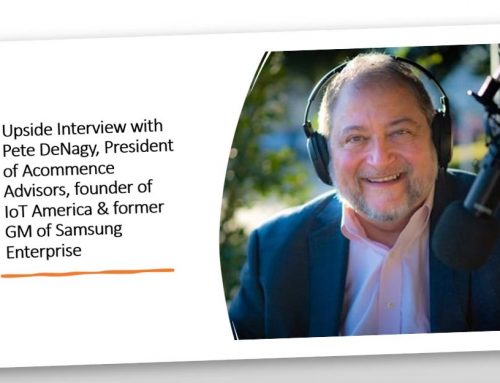For the past 10 years I have worked and helped many sports tech startups raise money, meaning helped them put together VC decks and connect them with potential investors (VCs, angels, Teams’ VC arms..). Now I never guarantee startups that I can help them raise money. However what I can do is help these startups be best positioned for success with a VC deck that makes sense and I can open doors to potential investors. And here is what I believe are some of the best practices when it comes to raising money from investors.
Keep your VC deck to 15 slides maximum
Too many times I have seen VC decks that are 20-30 slides long. That’s way too long. Your VC deck should be no longer than 15 slides. If you have more than 15 slides put the extra slides in the appendix section. VCs are extremely busy and if your VC deck is too long it will turn them off and you will jeopardize your chance of getting investment. Plus you need to be able to be concise and straight to the point. Generally speaking your deck should include the following sections: Mission statement, current problems, your solution, your management team, your GTM strategy, your business model, your financial projections. It should also include a slide on how much money you need to raise and how you plan to allocate the funds. I also like including 2 slides showing your unique competitive advantage. We will talk more about that in one of the upcoming sections.
For each slide have a very explicit title with the key takeaway
I have learned this from my days working for one of the largest OEMs in the world. Too many times I have seen VC decks with no explicit titles on each slide. For example instead of saying in the title “competitive matrix” say something like “Your company has an edge over the competition because of the breadth of its offering, his superior technology and unique GTM strategy”. The point here is that a VC should understand the key takeaway just by reading the title and without having to go through the whole slide. You know the slide in and out but do not assume that VCs get it right away just by looking at the content of your slide. So you have to spell it out.
Do not assume that VCs fully understand your space
Whenever you pitch your startup to potential investors you should not assume that they fully understand your space. Remember! You are the expert in your field. So you have to focus on fully explaining to them what the current problems are, the trends are, how your product and company are uniquely positioned, what your solution to the problem is, etc. That’s ok to oversimplify what you are trying to explain in your slides.
Less text is better. Focus on visuals
Oftentimes I see VC decks that contain too much text on the slides. If your slides have more than 15 lines of text it is already too long. It can create confusions for the VCs. I always tell startups to be concise, with less text on each slide. Instead focus on creating visuals (images, diagrams, videos..) as well. It will be easier for VCs to digest your slides as well and it will reflect better on yourself and your ability to make your point across.
Make sure to highlight your startup’s key strengths
I cannot stress that enough. If you only have 2 minutes to pitch to a VC you need to think about your key strengths and why should any potential investors invest in your startup. That means that you need to highlight your key strengths. Key strengths could be things like: “X years of combined experience in a given field, Unique technology, Strong Go-To-Market Strategy or business model, Great traction with top teams or leagues, Unique pricing strategy”. You get the idea. The point here is that the VC or potential investor needs to fully understand what is unique about your startup and why they should invest in your business.
Get testimonials from customers (Teams..)
I always say to startups: “A quote from a top customer (Top teams..) is often worth more than a thousands words”. Even if you are an early stage startup, but you already have some pilot customers, ask the athletic trainer or head of digital of the team if they can give you a testimonial or quote highlighting why they like your product. That will resonate well with your potential investors because if your customers say good things about you it is not just you saying it but your customer themselves. That also shows that your product is addressing a need in the market whether it is to reduce injuries, improve players’ sleep, the rehab process, or improve the fans experience. You get the point here.
Highlight the startups’ unique competitive advantage and positioning
I always like to include in VC decks 2 slides showing your unique competitive advantage(s). The first slide should be a competitive matrix which highlights how your startup is unique compared to the competitors based on several criteria (e.g. breadth of the offering, pricing strategy, etc..). The other slide should also be a slide with a x y axis showing your positioning compared to the competition based on 2 distinct criteria. It needs to be visual so that potential investors can fully understand how you are uniquely positioned to win the market.
Understand at what stage the potential investors usually invest in
This is a common mistake that I have seen made by many sports tech startups. Oftentimes they do not spend enough time researching at what stage a targeted VC or investor usually invest in. If you are an early stage startup and are targeting a VC usually investing in Series A startups you will have very little chance to get any response. Instead if you are an early stage startup focus on raising money from angel investors, family offices, micro funds, or startups accelerators. You will have a much better chance to raise money there.
Think about how your startup can enhance the VC’s existing startup portfolio
Now this is another key element when raising money from VCs. Many times I have seen sports tech startups who do not spend enough time looking at the portfolio startups of a targeted investor. Why is that important? Because it will help you best position your startup when pitching your startup to the investor. For example if a VC has invested in several wearable sports startups and you are a startup that has built advanced algorithms that deliver customizable health insights, your pitch to this VC should be: “If you invest in our startup we will help your wearable sports portfolio startups deliver actionable health insights to their end users. It will help bring value to them and their customers and improve the stickiness of their wearable offering”. So make sure to always do your homework there. It will increase your chance of success raising money from those investors. And VCs will appreciate the fact that you took the time to do that.
Do not be afraid to mention other potential investors
Another thing that VCs like to hear is that other potential investors are already interested in being part of a round of funding. Now not all startups can be in this position especially if they are an early stage startup. But if you are a sports tech startup that already has interest from potential investors do not be afraid to mention them. The truth is that VCs always prefer to invest with other investors because it is less risk for them and sometimes they like making deals with VCs that they work with before. So again there is no harm in mentioning other potential investors. It will help you get more attention among potential investors.
Do not forget to include similar exits in the appendix
This is another important element that is often missing in VC decks based on my experience. You should always try to include a slide in the appendix section showing similar M&As or exits. Why? Because that way the VCs will see the potential ROIs. If your competitor got sold for $100M and you think you have a better technology and better strategy then it is a fair assumption for you to say that you think that we could be sold for $100M+. So make sure to include a slide on similar M&As and exits in your appendix section.
Pitch VCs what they want to hear, but be honest about where you are
Of course you have to pitch VCs what they want to hear meaning that you have a unique technology, great momentum, a strong management team but you also have to make sure to be honest with the potential investors on where you are as a company. If you are an early stage startup with an MVP and working prototype, be honest about it. Do you claim to have a full end to end solution. Say something like: “For us to build a full end-to-end solution with a full analytics platform, we need to raise additional funding. This is why we are talking to you now”. The point here is to not pretend that you are at a later stage because it could backfire with the investors and your customers.
Pitch them the big vision, not the short term vision
VCs always want to hear the big vision. Like they always say “Go Big or go home!”. VCs will always be more interested in startups that have a big vision, that can disrupt markets with disruptive technologies (sleep tech, injury prevention, mental health, AR/VR, NFTs…). They want to see and hear something that excite them. If you intent to enter an existing market there is no point in not pitching a big vision especially if the market you are focusing on is full of competitors. So think big, and do not just pitch the short term vision.
Send 3-4 bullet points to VCs summarizing why they should invest in your startup
When I reach out to potential investors on behalf of sports tech startups I always like to keep it short. VCs are just way to busy and if you send a long email that will turn them off. So be straight to the point on why they should spend 30 seconds reading your email. I always like to include 3-4 bullet points in my email to VCs. The bullet points should focus on highlighting things like “the experienced management team, great traction, unique technology or product”. That’s it. And if you already have potential investors who are interested in investing in your startup be sure to mention it there. And make sure to attach your VC deck as part of this email.
Pick potential investors who understand your space
The last thing you want as a startup CEO is to get money from a VC or investor who does not understand your space. I have seen many horror stories of startups taking money from investors who were not familiar with their space. This could have some serious consequences on the future of the startup. So focus on finding a VC or investor that is focusing on your space (connected fitness, NFT, wearables, injury prevention, AR/VR, esport..). That will increase your chance of success.
Show proof of traction: You can show LOIs.
Telling a potential investor that you have interest from some major sports teams is one thing but you have to show proof of that. So if you can get a Letter Of intent (LOI) from a potential customer (team, league..) saying that they intent to buy your product then take advantage of that. It will go a long way when trying to pitch to a VC.
Think beyond sports and other verticals (healthcare, industrials..).
Now this goes beyond the world of sports and tech, but I have worked with many sports tech startups that have transitioned and gone beyond the world of sports and tech. Why is that important to mention this when pitching to a VC? Because by saying that “down the road we intent to go beyond sports and enter other verticals like healthcare, industrials”, the potential investor will clearly see what the ROIs could be down the road. In sports your product could be used by 20 soccer players but in sectors like constructions your product could be used by thousands of field workers. You get the point.
Bottom line: As a sports tech CEO pitching to potential investors you need to target the right investor, do your homework about their past investments, show momentum and put together a VC deck that is concise, exciting and straight to the point. And you don’t need to pitch your VC to 100 potential investors you need to focus on the right potential investors. This will save you a lot of time and it will increase your chance of success.
If you need help putting together a VC deck and connecting with potential investors (VCs, angels..), feel free to reach out to me at julien@sportscouncilsv.com











Leave A Comment
You must be logged in to post a comment.